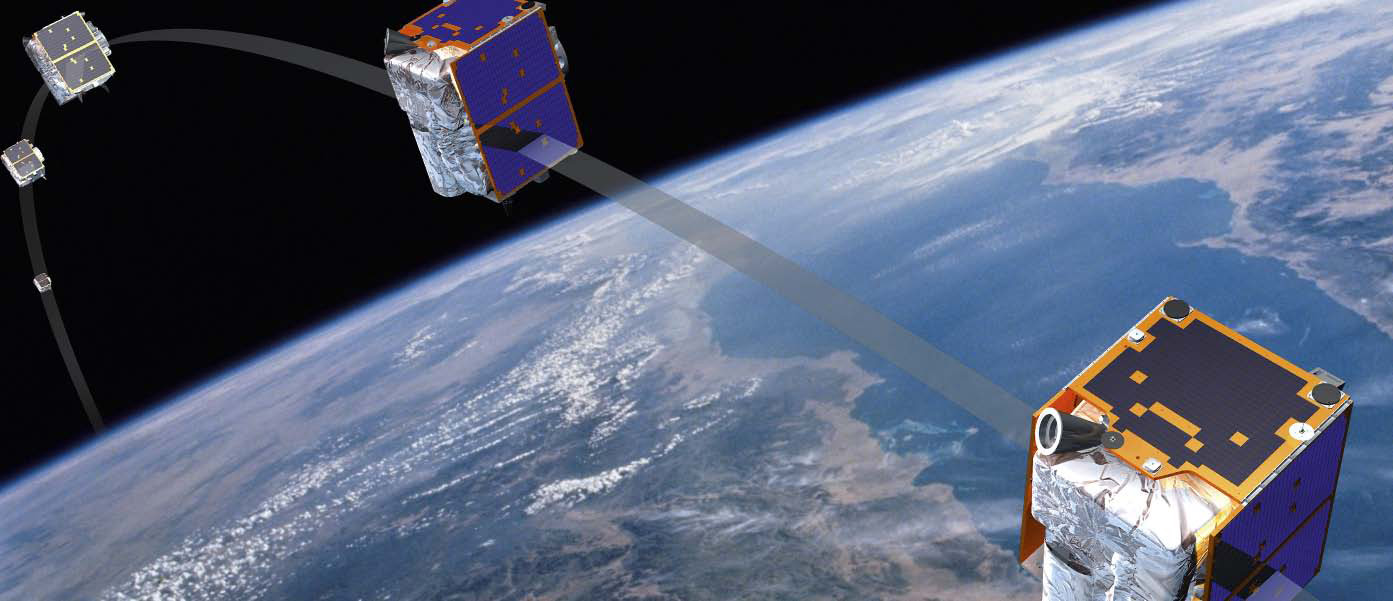Team of the Russian-Chinese “space tether systems” laboratory has won a grant in a joint competition of basic research projects of the Russian Foundation for Basic Research and the National Natural Science Foundation (China). Out of 306 applications, 60 projects have been supported.
Head of the laboratory — Samara National Research University Professor Sergey Ishkov. The project by Samara and Chinese scientists is dedicated to the dynamic analysis and control of motion of a tether microsatellite constellation.
The grant’s implementation will take two years. The team, headed by the laboratory representative Professor Yury Zabolotnov, consists of postgraduate students Tatyana Ledkova, Pavel Voevodin, and young scientists from the Automation Institute of the Northwestern Polytechnical University (Xi'an, PRC) Lu Hongshi, Chen Shuming.
The scientists will develop methods for coordinated control of motion of a tether microsatellite constellation at the deployment stage, when building into a desired structure and during further orbital motion.
"The complexity of controlling such systems is caused by their relatively large size — reaching hundreds of meters and even more, and by requirements to configuration which, depending on the intended use, can be linear, ring (triangular and multangular) and radial (“spider” structure),” says Professor Yury Zabolotnov. “Computation of coordinated motion of such a constellation should take into account the orbital behavior of each satellite alone and elastic vibrations emerging the system in presence of flexible connections — tethers."
The research work will enable creation of light extended in-orbit structures ensuring coordinated flight of a microsatellite system along the near-earth orbit. Such structures can be used as extended measuring systems, near- and deep-space surveillance systems, long-base earth surface scanning systems, space debris collection systems, and in other applications.
The research will be carried out under the umbrella of a joint Russian and Chinese laboratory “space tether systems”, simultaneously operating in Samara National Research University and in the Northwestern Polytechnical University (Xi'an, PRC).
For reference
The international cooperation between Samara National Research University and the Northwestern Polytechnical University (NPU, Xi'an, PRC) in the framework of studies dedicated to the dynamics and control of motion of space tether systems, is ongoing since 2013.
Since 2015, Russian and Chinese "space tether systems" laboratory is carrying out joint research. The cooperation has resulted in multiple collaborative publications and reports in international conferences.
The ties are being reinforced by mutual trainee projects for students and professors of both universities, and intramural postgraduate programs in Samara University for NPU master degree students. In 2019, Dong Jae, postgraduate student supervised by Yury Zabolotnov, successfully defended his thesis in Samara University. The topic of his dissertation was "Analysis of dynamics and development of methods for low-orbit tether system motion control".
Currently two students from China, Lu Hongshi and Chen Shuming (supervisor Yury Zabolotnov), are studying in the intramural postgraduate department of Samara University. Their thesis research is directly related to the presented project. The preceding joint studies have mostly consisted in research of a tether system made of two spacecraft. The presented project aims to solve significantly more complex tasks of building and stabilizing the motion of a tether microsatellite constellation.
Published in China: Monograph by Zabolotnov Yu. Introduction to the dynamics and control of the motion of space tether systems. Beijing: Science Press, 2013.


